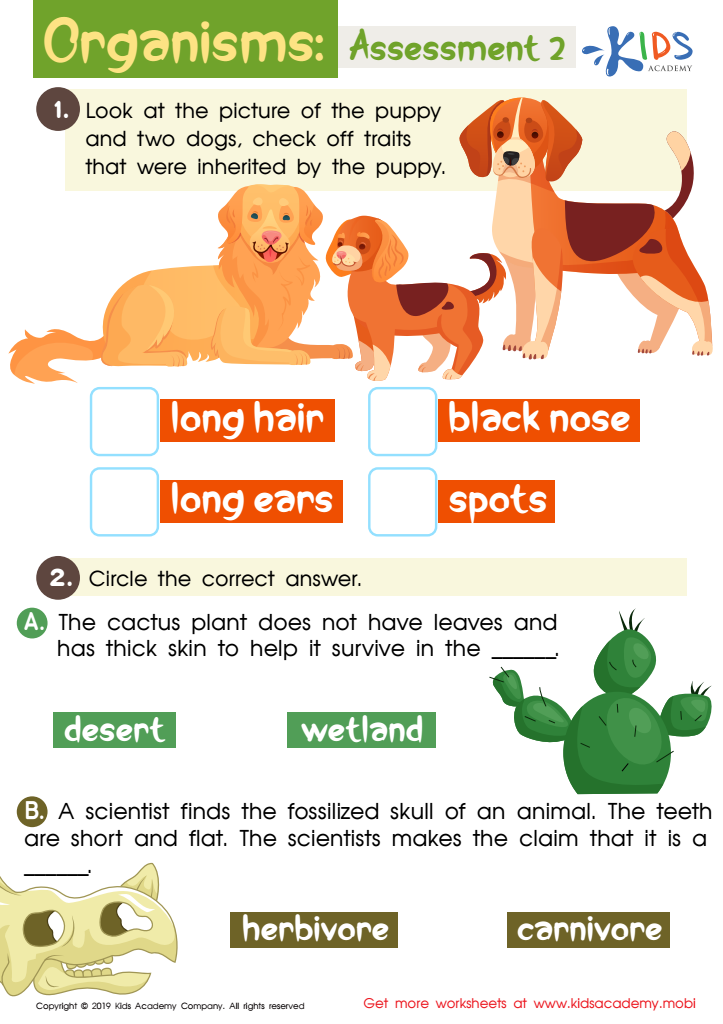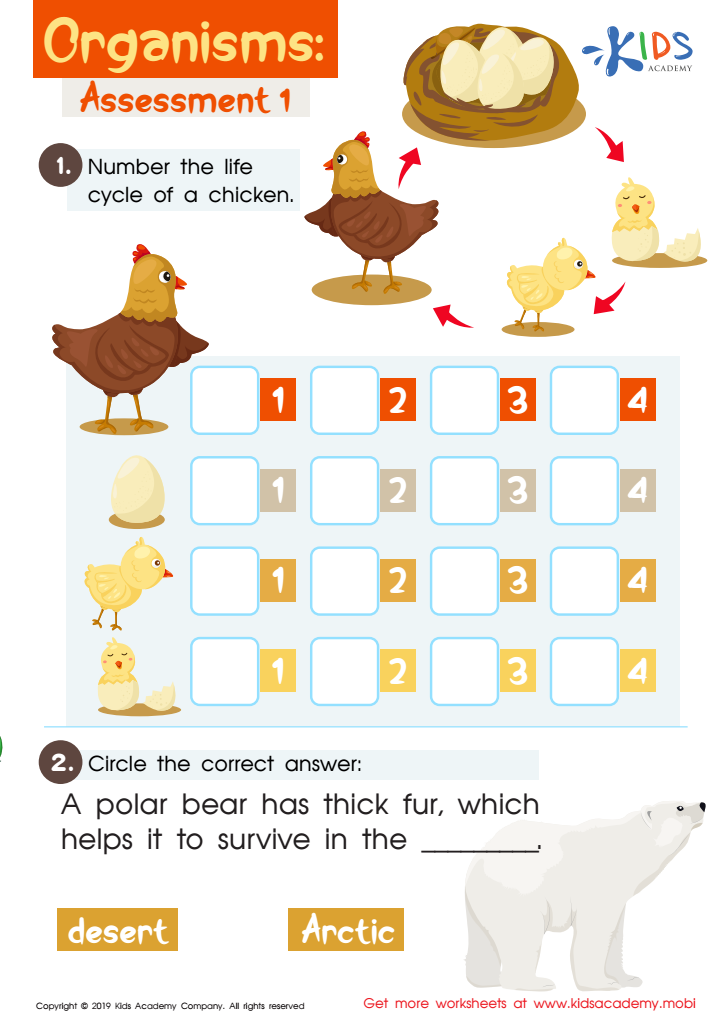Science worksheets activities for 9-Year-Olds
2 filtered results
-
From - To


Organisms: Assessment 2 Worksheet


Organisms: Assessment 1 Worksheet
Science worksheets activities are an essential tool in the educational journey of students of all ages. These activities are designed to reinforce learning, foster critical thinking, and promote engagement with scientific concepts in a structured yet exploratory manner. By integrating science worksheets into the curriculum, educators can provide a diverse range of benefits that enhance the learning experience and contribute significantly to the students' understanding and appreciation of science.
One of the primary reasons why science worksheets activities are so useful is their ability to cater to different learning styles. Whether a student is a visual learner, prefers hands-on experiences, or thrives through reading and writing, worksheets can be tailored to meet these varied needs. This customization ensures that every student has the opportunity to grasp complex scientific ideas in a way that resonates with them personally.
Furthermore, science worksheets activities facilitate critical thinking and problem-solving skills. As students work through experiments, answer questions, and engage with real-world scenarios, they are encouraged to think deeply about the material and apply scientific principles to draw conclusions. This hands-on approach to learning not only solidifies their understanding but also prepares them for future scientific endeavors by fostering a mindset of inquiry and analysis.
Another significant advantage of science worksheets is their flexibility. Teachers can use them as a part of classroom instruction, homework assignments, or even as assessment tools to gauge students' comprehension and progress. This versatility makes them an invaluable resource in any science education setting.
Lastly, science worksheets activities make the subject more accessible and enjoyable. By breaking down complex topics into manageable tasks, students can overcome intimidation and develop a genuine interest in exploring the wonders of science. Engaging worksheets with creative and thought-provoking exercises spark curiosity and motivate students to delve deeper into scientific exploration.
In conclusion, science worksheets activities are a cornerstone of effective science education. They enrich the learning environment by accommodating diverse learning styles, enhancing critical thinking, offering flexibility, and making science both accessible and enjoyable. As such, they play a crucial role in nurturing the next generation of scientists, engineers, and informed citizens.
 Assign to My Students
Assign to My Students















